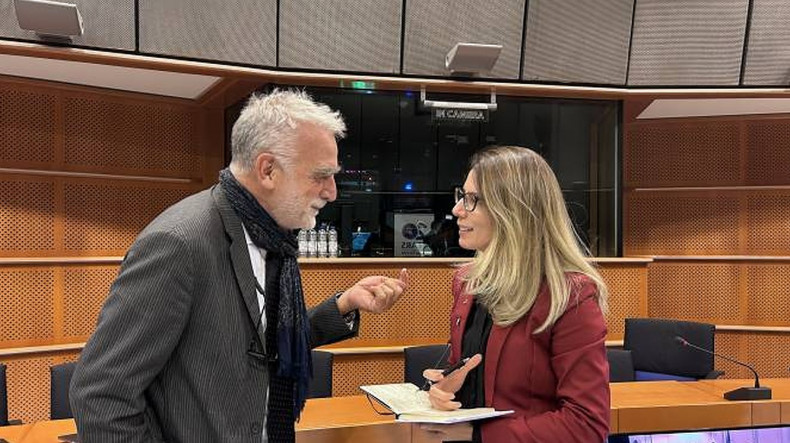
Artsakh exodus was genocide, says former ICC chief prosecutor
The former chief prosecutor of the International Criminal Court (ICC), Luis Moreno Ocampo, believes that countries are deliberately ignoring the risk of genocide to avoid the obligation to prevent it.
In an interview with Armenpress Brussels correspondent, Ocampo said that the forced displacement of Armenians in Nagorno-Karabakh after the Azerbaijani attack constitutes genocide.
Mr. Ocampo, on August 7, you provided and then published your professional opinion to the President of the Republic of Artsakh, considering the blockade and complete siege of Artsakh as genocide. What process could have been started at that time to prevent the coming disaster?
Well, the report was important because we made a point in the public opinion. However, states are doing something fascinating, they are deliberately ignoring the risk of genocide to avoid the obligation to prevent genocide, that’s what we found. We found basically that states are trying to avoid the word genocide. Even because when the US Congress took the report and started activities, then US State Department, without mentioning genocide said they will protect Nagorno Karabakh internationally. But it was late too late. They said that and three days later Aliyev attacked.
How do you interpret what happened after September 19 in Nagorno Karabakh? It seems that when many say genocide, they only imagine a massacre. But in a few days, more than a hundred thousand people forcibly left their homeland, leaving behind everything.
That is a genocide as well, under Genocide Convention article 2B. There's a new report by Juan Mendes saying that the fact that 100,000 people left is showing the mental harm. The fact that they left everything. So that is another form genocide to be, not only killing. The killing was not massive, but there is a mental harm of all the community leaving their land.
What legal mechanisms are there for the rights of the people of Artsakh that can work and how realistic do you consider the restoration of the rights of these people according to international norms?
I think it's important now that France is pushing for that. That's an important state that is pushing the agenda and it's something we should fight for. We should fight for gaining respect of the right of the people, because the people, even if they are not there, they are still the owners of the land and the place, so their rights must be respected. And I think a different priority is to recover, to release the hostages. There are 53 people in jail in Azerbaijan. The problem is international law is not something like if someone steals your bike, you can go to the police and the courts. No, there's nothing like that. We have the International Court of Justice presumably for states, and there is the International Criminal Court for prosecuting individuals. The legal process for releasing these people is not clear, but we should develop the process politically. That is why this meeting is important.
Newsfeed
Videos






























